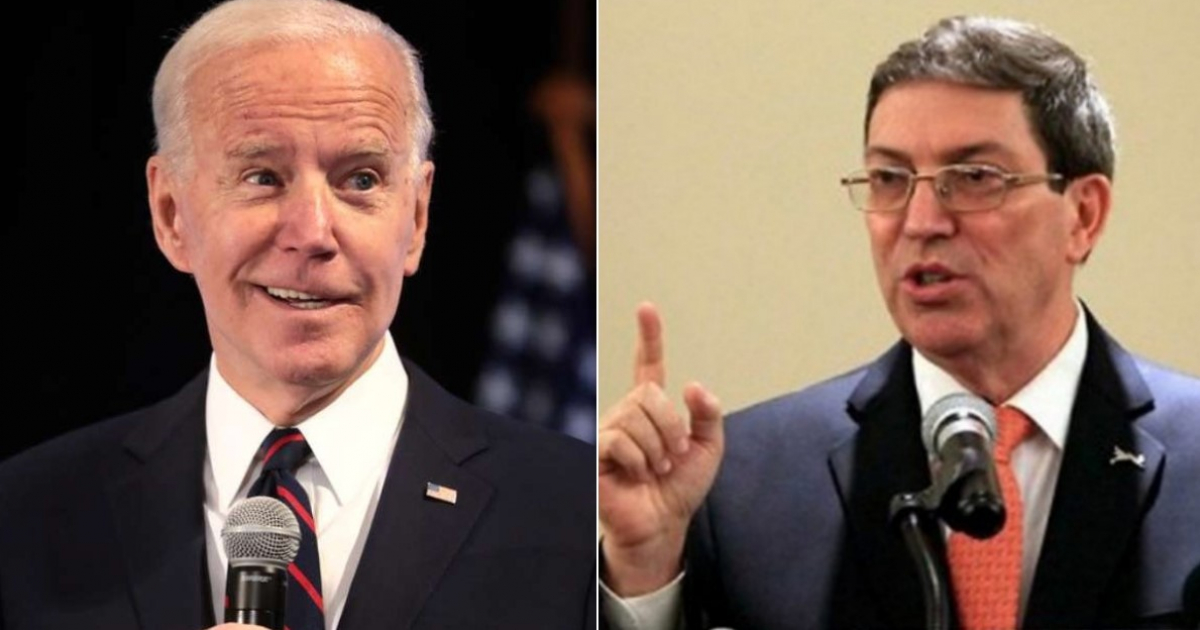The Cuban government has criticized the recent U.S. regulations aimed at boosting support for private sector entrepreneurs and promoting Internet freedom on the island, calling them "limited." These measures include authorizing cloud-based services to facilitate online communication and expanding services for installing telecommunications equipment. However, Cuban authorities argue that these steps "do not address the core of the blockade against Cuba or the additional sanctions."
According to Foreign Minister Bruno Rodríguez Parrilla, the new measures do not reverse the "cruel impact" of the embargo on Cuban families nor the designation of Cuba as a state sponsor of terrorism. "These measures aim to create divisions within Cuban society, while the U.S. government funds disinformation campaigns," Rodríguez Parrilla stated on his Twitter account.
Rodríguez Parrilla shared a statement from the Ministry of Foreign Affairs (MINREX), accusing the U.S. government of targeting only a segment of the population due to its distorted view of Cuban reality. According to MINREX, the United States intends to artificially separate the private sector from the public sector, "even though both are part of the Cuban business system and society as a whole."
"The goal is to give an advantage to the private sector that has legally established itself and grown under the sovereign measures taken by the Cuban government. The same applies to Internet access, which has been established and expanded by Cuba despite the blockade's obstacles and restrictions on free access," the statement reads.
"The U.S. government has been explicit in its intention to use this sector for political purposes against the Revolution, in line with its regime change objectives," the text adds. Havana emphasizes that both the public and private sectors will continue to suffer the consequences of the embargo and accuses the White House of aiming to punish the Cuban state sector.
"The Cuban government will study these measures, and if they do not violate national legislation and represent an opening that benefits the Cuban population, even if only a segment, it will not hinder their implementation," the document concludes.
Meanwhile, Johana Tablada, the Deputy Director General for the United States at MINREX, held a press conference to reiterate the official statement from her ministry. "Once again, the U.S. government tries to tailor its actions not to the reality of Cuba but to a fiction it has constructed about Cuban reality," she said.
On Tuesday, the U.S. Department of the Treasury, through the Office of Foreign Assets Control (OFAC), announced new amendments to the Cuban Assets Control Regulations to increase support for private Cuban entrepreneurs and promote Internet freedom on the island. One of the measures allows the export and re-export of Cuban-origin software and mobile applications from the United States to third countries.
Another significant change is the redefinition of "independent private sector entrepreneurs," now excluding prohibited regime officials and members of the Communist Party. The new definition encompasses not only individual entrepreneurs but also cooperatives and other private businesses with up to 100 employees.
An important change is that private Cuban entrepreneurs will be able to access accounts in U.S. banks and conduct financial transactions from third countries (U-Turn transactions) to send remittances and other payments to individuals on the island. This overturns a Trump administration regulation that prohibited U.S. banks from processing transactions related to Cuba through third-country banks. This could allow companies like Western Union to restore their services from their international offices.
U-Turn transactions will enable banking institutions to process fund transfers involving Cuba, as long as they originate and conclude outside the United States and do not involve persons subject to U.S. jurisdiction. "This measure will improve the flow of remittances and payments for authorized transactions in the Cuban private sector, economically supporting entrepreneurs and their businesses," OFAC noted.
Understanding the Impact of New U.S. Regulations on Cuba
In light of the recent U.S. regulations aimed at the support of private entrepreneurs and Internet freedom in Cuba, here are some key questions and answers to provide further insight.
What are the new U.S. regulations regarding Cuba?
The new regulations include authorizing cloud-based services, expanding telecommunications equipment services, and redefining "independent private sector entrepreneurs" to exclude regime officials and Communist Party members.
How do these regulations affect Cuban entrepreneurs?
The regulations allow private Cuban entrepreneurs to access U.S. bank accounts and conduct financial transactions from third countries, which could facilitate remittances and other payments, thereby supporting their businesses.
What is the Cuban government's stance on these new measures?
The Cuban government has labeled the measures as "limited," arguing that they do not address the core issues of the U.S. embargo and additional sanctions. They also accuse the U.S. of trying to create divisions within Cuban society.
